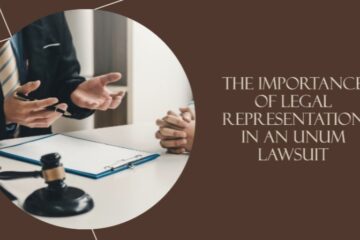Inheritance or will disputes are most likely to occur when a person is unfairly deprived of their entitled share due to a third party’s actions. This situation, commonly known as interference with inheritance, involves people intentionally interfering with the will execution or detriments of trust of the rightful heirs or beneficiaries.
While inheritance laws promise to protect the deceased’s intentions, there are a few instances where these protections may be bypassed, resulting in significant emotional turmoil and financial losses for the affected parties.
Deep into Interference with Inheritance
So, interference with inheritance occurs when a third party knowingly disrupts a beneficiary’s expected gift or inheritance through wrongful actions like duress, undue influence, or fraud. In legal terms, this claim is referred to as “tortious interference with expectancy of inheritance” and allows people to seek compensation in cases of unjustly thwarting anticipated inheritance.
To facilitate a legal claim for interference with inheritance, the plaintiff must typically showcase the following elements:
- Existence of an expectancy: It means that the plaintiff must produce a reasonable expectation of receiving a gift or inheritance.
- Causation: The interference caused must directly affect the plaintiff’s expectancy to be eliminated or altered.
- Intentional interference: Proof that the defendant has intentionally interfered with the plaintiff’s expectancy through wrongful acts or conduct.
- Damages: The plaintiff must show that they suffered damages due to the interference.
While these elements may differ slightly based on jurisdiction, the core principles stay consistent across several states, including Florida, California, and North Carolina, where such claims are legally recognized.
For instance, suppose an older individual is coerced by their caregiver to alter their will, even excluding their rightful heirs. As this manipulation may result in the deprivation of the legitimate heir of their inheritance, they will have grounds to claim interference with inheritance. These complicated claims involve civil courts and probate to address the wrongdoing.
Legal protections against interference with inheritance
The legal framework for interference with inheritance varies from state to state, but most jurisdictions recognize it as a tort. This implies that people who have been wronged can file a claim seeking damages. Here are a few notable aspects of the legal protections available in such cases:
Intentional interference with expected inheritance (IIEI)
IIEI, or tortious interference claim, is recognized in many states, including California, allowing the aggrieved party to file a legal claim against the individual who interfered with their inheritance. To succeed in an IIEI claim, the plaintiff must prove that:
- They had a reasonable expectation of receiving an inheritance.
- The defendant knowingly interfered with that expectancy.
- The interference was unjust, involving duress, undue influence, or forgery.
- The interference caused harm, like financial loss and emotional turmoil.
- The plaintiff must demonstrate probate remedies, like challenging the will, are inappropriate.
Forgery and document alteration
If the will or trust is found to have been altered or forged, the court can take action to nullify these fraudulent documents. If needed, forensic experts can examine the will and signature’s authenticity and several other aspects of documents to determine whether they have been tampered with.
Damages
Suppose the claims favored the plaintiff in interference with inheritance. In that case, the court can help recover various damages, such as punitive damages for particularly egregious conduct, emotional distress, and compensatory damages for the lost inheritance’s value.
Equitable remedies
In some cases, the plaintiff can seek equitable remedies, such as imposition of a constructive trust that helps restore the expected distribution of assets.
Breach of fiduciary duty
Executors, trustees, and other fiduciaries have a legal responsibility to act in the best interest of the beneficiaries. They fail their fiduciary duties if they mismanage the assets or favor one party over another. The court will then hold them accountable for their actions, providing an extra protection layer against interference with inheritance.
Steps to take if you are affected
If you perceive to have been affected by interference with inheritance, you can take prompt, decisive action to protect your rights. Here’s what you can do:
Gather evidence
You can start by gathering relevant evidential documents like trusts, wills, and other correspondence to help establish your case. Any proof of fraud, coercion, or undue influence should all be carefully preserved.
Consult an attorney
Hire a specialized estate litigation lawyer with experience handling interference with inheritance lawsuits. They can assist you to identify your case’s strengths and guide you through the legal procedures.
File a probate challenge
If you perceive the will or trust to have been tampered with, you can file a challenge in probate court. This will help rectify any wrongdoing with the will and ensure that the deceased’s wishes are honored.
Consider a civil lawsuit
If the probate remedies are unsuccessful, you can file a civil lawsuit for intentional interference with expected inheritance. While this may be a complex and lengthy process, it provides a legal avenue for damage recovery due to the interference.
Seek mediation
Many times, moderate disputes can be resolved through mediation outside of court without trials. This approach is less adversarial and cost-effective for settling disputes while preserving familial relationships.
Real-world examples and case law
One famous landmark case highlighting the issue of inheritance interference is “Beckwith V. Dahl (2012).” This case was recognized by the California Court of Appeal as a tort of intentional interference with expected inheritance (IIEI) as the valid cause of action. The plaintiff, Beckwith, was unfairly deprived of his inheritance rights due to the defendant’s actions, Dahl, who hid a vital document that would have named Beckwith as a beneficiary. The court rules in favor of the plaintiff, Beckwith, setting a precedent for similar cases in the future.
These cases illustrate the significance of legal protections against interference with inheritance and the court’s role in upholding the deceased’s true intentions.
To sum up
Interference with inheritance cases often has devastating consequences on the affected, resulting in emotional distress and financial losses. However, the legal system offers several avenues for recourse, like filing a civil lawsuit for intentional interference with an expected inheritance or challenging a will in probate court. By knowing your legal rights and taking rightful measures, you can protect your rights and inheritance and ensure honor to your loved ones’ wishes.
If you suspect you have been a victim of interference with inheritance, you must seek legal protection and advice promptly. A qualified and experienced attorney can help you with the complexities of inheritance laws and represent you in the fight for justice.
Keep an eye for more news & updates on Gossips!




